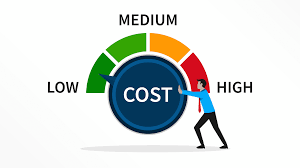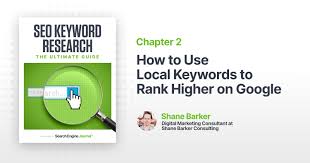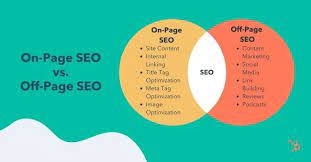Unlocking the Potential of SEO SpyGlass: A Comprehensive Guide to Backlink Analysis
Unveiling the Power of SEO SpyGlass
SEO SpyGlass is a powerful tool that provides invaluable insights into your website’s backlink profile. In the realm of search engine optimisation (SEO), backlinks play a crucial role in determining your website’s authority and ranking on search engine results pages.
So, what sets SEO SpyGlass apart from other SEO tools? The answer lies in its comprehensive approach to backlink analysis. By utilising SEO SpyGlass, you gain access to a wealth of information about your backlinks, including their source, quality, anchor text, and much more.
The Key Features of SEO SpyGlass:
- Backlink Quality Analysis: SEO SpyGlass evaluates the quality of each backlink pointing to your site, helping you identify potentially harmful links that could be impacting your SEO performance.
- Competitor Backlink Analysis: Gain valuable insights into your competitors’ backlink profiles and discover new link-building opportunities to stay ahead in the competitive digital landscape.
- Link Building Strategy: With detailed data on your backlinks, you can develop a targeted link building strategy that focuses on acquiring high-quality links from authoritative websites.
- Anchor Text Analysis: Understand how anchor text is used in your backlinks and optimise it for better keyword targeting and improved organic search visibility.
The Benefits of Using SEO SpyGlass:
By incorporating SEO SpyGlass into your SEO toolkit, you can:
- Enhance Your Link Profile: Identify and disavow toxic links while building a strong foundation of high-quality backlinks that boost your website’s authority.
- Gain Competitive Advantage: Stay informed about your competitors’ link-building strategies and leverage this knowledge to outperform them in search rankings.
- Improve Search Engine Rankings: By understanding and optimising your backlink profile, you can enhance your website’s visibility on search engines like Google, driving more organic traffic to your site.
In conclusion, SEO SpyGlass is an indispensable tool for any business or individual looking to elevate their SEO efforts. With its advanced features and actionable insights, it empowers you to make informed decisions that drive tangible results in the competitive world of online marketing.
Mastering SEO SpyGlass: 9 Essential Tips for Effective Backlink Analysis and Strategy
- Regularly monitor your website’s backlink profile using SEO SpyGlass to identify new backlinks and potential issues.
- Analyse your competitors’ backlink profiles with SEO SpyGlass to uncover their link building strategies.
- Utilise the Domain Comparison feature in SEO SpyGlass to compare multiple websites’ backlink profiles side by side.
- Focus on high-quality backlinks by evaluating link quality metrics provided by SEO SpyGlass like domain authority and anchor text analysis.
- Regularly disavow toxic or spammy backlinks discovered through SEO SpyGlass to maintain a healthy link profile.
- ‘Link Intersection’ feature in SEO SpyGlass helps you identify common backlinks between multiple websites for strategic link building opportunities.
- ‘History records’ in SEO Spyglass can help you track changes in your website’s backlink profile over time.
- ‘Scheduled tasks’ In Seo spyglass can help you automate regular monitoring of your website’s backlinks.
- ‘Customize reports’ generated by Seo spyglass to focus on specific metrics or data points that are most relevant to your seo strategy.
Regularly monitor your website’s backlink profile using SEO SpyGlass to identify new backlinks and potential issues.
Regularly monitoring your website’s backlink profile using SEO SpyGlass is a crucial step in maintaining a healthy and effective SEO strategy. By staying vigilant and proactive in tracking new backlinks and identifying any potential issues, you can ensure that your website continues to build authority and rank well in search engine results. SEO SpyGlass provides the tools necessary to keep a close eye on your backlink profile, allowing you to address any emerging issues promptly and capitalise on new opportunities for link building and organic growth.
Analyse your competitors’ backlink profiles with SEO SpyGlass to uncover their link building strategies.
By utilising SEO SpyGlass, you can delve into your competitors’ backlink profiles to unveil their link building strategies. This insightful analysis allows you to gain a competitive edge by understanding the types of backlinks they are acquiring and the sources they are leveraging. By identifying these key insights, you can adapt and enhance your own link building approach to stay ahead in the ever-evolving landscape of search engine optimisation.
Utilise the Domain Comparison feature in SEO SpyGlass to compare multiple websites’ backlink profiles side by side.
By utilising the Domain Comparison feature in SEO SpyGlass, you can efficiently compare the backlink profiles of multiple websites side by side. This powerful tool allows you to gain valuable insights into the strengths and weaknesses of each website’s link profile, enabling you to identify key opportunities for improvement and strategic link building. With the ability to analyse and compare backlinks across different domains simultaneously, you can make informed decisions to enhance your website’s authority and visibility in search engine results pages.
Focus on high-quality backlinks by evaluating link quality metrics provided by SEO SpyGlass like domain authority and anchor text analysis.
To maximise the effectiveness of your SEO strategy using SEO SpyGlass, it is essential to concentrate on acquiring high-quality backlinks. By leveraging the link quality metrics offered by SEO SpyGlass, such as domain authority and anchor text analysis, you can pinpoint valuable backlink opportunities that enhance your website’s authority and search engine ranking. Evaluating these key metrics allows you to prioritise building links from reputable sources with relevant anchor text, ultimately strengthening your backlink profile and boosting your overall SEO performance.
Regularly disavow toxic or spammy backlinks discovered through SEO SpyGlass to maintain a healthy link profile.
Regularly disavowing toxic or spammy backlinks identified through SEO SpyGlass is essential to preserving a healthy link profile for your website. By taking proactive measures to disavow harmful links, you can safeguard your site’s credibility and authority in the eyes of search engines. This practice not only helps in maintaining a positive reputation but also ensures that your SEO efforts are focused on acquiring high-quality backlinks that contribute positively to your online visibility and search engine rankings.
‘Link Intersection’ feature in SEO SpyGlass helps you identify common backlinks between multiple websites for strategic link building opportunities.
The ‘Link Intersection’ feature in SEO SpyGlass is a valuable tool that enables you to pinpoint shared backlinks across multiple websites, offering a strategic advantage in link building efforts. By identifying common backlinks between different sites, you can uncover potential collaboration opportunities and leverage these connections to strengthen your own backlink profile. This feature not only streamlines the process of discovering relevant link-building prospects but also empowers you to forge beneficial partnerships that can enhance your website’s authority and visibility in search engine results.
‘History records’ in SEO Spyglass can help you track changes in your website’s backlink profile over time.
The ‘History records’ feature in SEO SpyGlass proves to be a valuable asset for website owners and SEO professionals alike. By utilising this function, you can effectively monitor and track changes in your website’s backlink profile over time. This historical data enables you to identify trends, analyse the impact of your link-building efforts, and make informed decisions to enhance your website’s SEO performance. With the ability to track the evolution of your backlinks, you can adapt your strategies accordingly and strive for continuous improvement in your search engine rankings.
‘Scheduled tasks’ In Seo spyglass can help you automate regular monitoring of your website’s backlinks.
Scheduled tasks in SEO SpyGlass can be a game-changer for maintaining a healthy backlink profile effortlessly. By utilising this feature, you can automate the regular monitoring of your website’s backlinks, ensuring that you stay informed about any changes or new additions to your link profile without the need for manual intervention. This not only saves time but also allows you to proactively address any issues that may arise, ultimately contributing to the overall success of your SEO strategy.
‘Customize reports’ generated by Seo spyglass to focus on specific metrics or data points that are most relevant to your seo strategy.
Customising reports generated by SEO SpyGlass allows you to tailor the information to concentrate on specific metrics or data points that align closely with your SEO strategy. By honing in on the most relevant aspects, such as backlink quality, competitor analysis, or anchor text insights, you can gain a deeper understanding of key areas that directly impact your website’s search engine performance. This targeted approach not only streamlines your analysis process but also enables you to make informed decisions and adjustments that are in line with your SEO objectives, ultimately enhancing the effectiveness of your digital marketing efforts.









